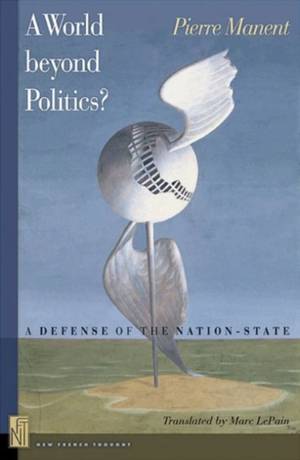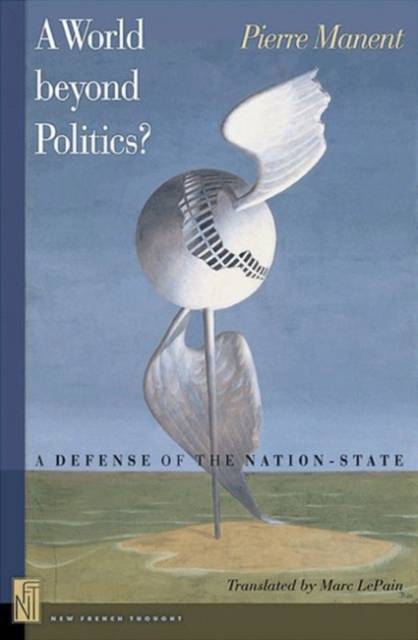
- Retrait gratuit dans votre magasin Club
- 7.000.000 titres dans notre catalogue
- Payer en toute sécurité
- Toujours un magasin près de chez vous
- Retrait gratuit dans votre magasin Club
- 7.000.0000 titres dans notre catalogue
- Payer en toute sécurité
- Toujours un magasin près de chez vous
Description
We live in the grip of a great illusion about politics, Pierre Manent argues in A World beyond Politics? It's the illusion that we would be better off without politics--at least national politics, and perhaps all politics. It is a fantasy that if democratic values could somehow detach themselves from their traditional national context, we could enter a world of pure democracy, where human society would be ruled solely according to law and morality. Borders would dissolve in unconditional internationalism and nations would collapse into supranational organizations such as the European Union. Free of the limits and sins of politics, we could finally attain the true life.
In contrast to these beliefs, which are especially widespread in Europe, Manent reasons that the political order is the key to the human order. Human life, in order to have force and meaning, must be concentrated in a particular political community, in which decisions are made through collective, creative debate. The best such community for democratic life, he argues, is still the nation-state. Following the example of nineteenth-century political philosophers such as Alexis de Tocqueville and John Stuart Mill, Manent first describes a few essential features of democracy and the nation-state, and then shows how these characteristics illuminate many aspects of our present political circumstances. He ends by arguing that both democracy and the nation-state are under threat--from apolitical tendencies such as the cult of international commerce and attempts to replace democratic decisions with judicial procedures.Spécifications
Parties prenantes
- Auteur(s) :
- Traducteur(s):
- Editeur:
Contenu
- Nombre de pages :
- 240
- Langue:
- Anglais
- Collection :
Caractéristiques
- EAN:
- 9780691125121
- Date de parution :
- 23-07-06
- Format:
- Livre relié
- Format numérique:
- Genaaid
- Dimensions :
- 163 mm x 238 mm
- Poids :
- 485 g

Les avis
Nous publions uniquement les avis qui respectent les conditions requises. Consultez nos conditions pour les avis.






